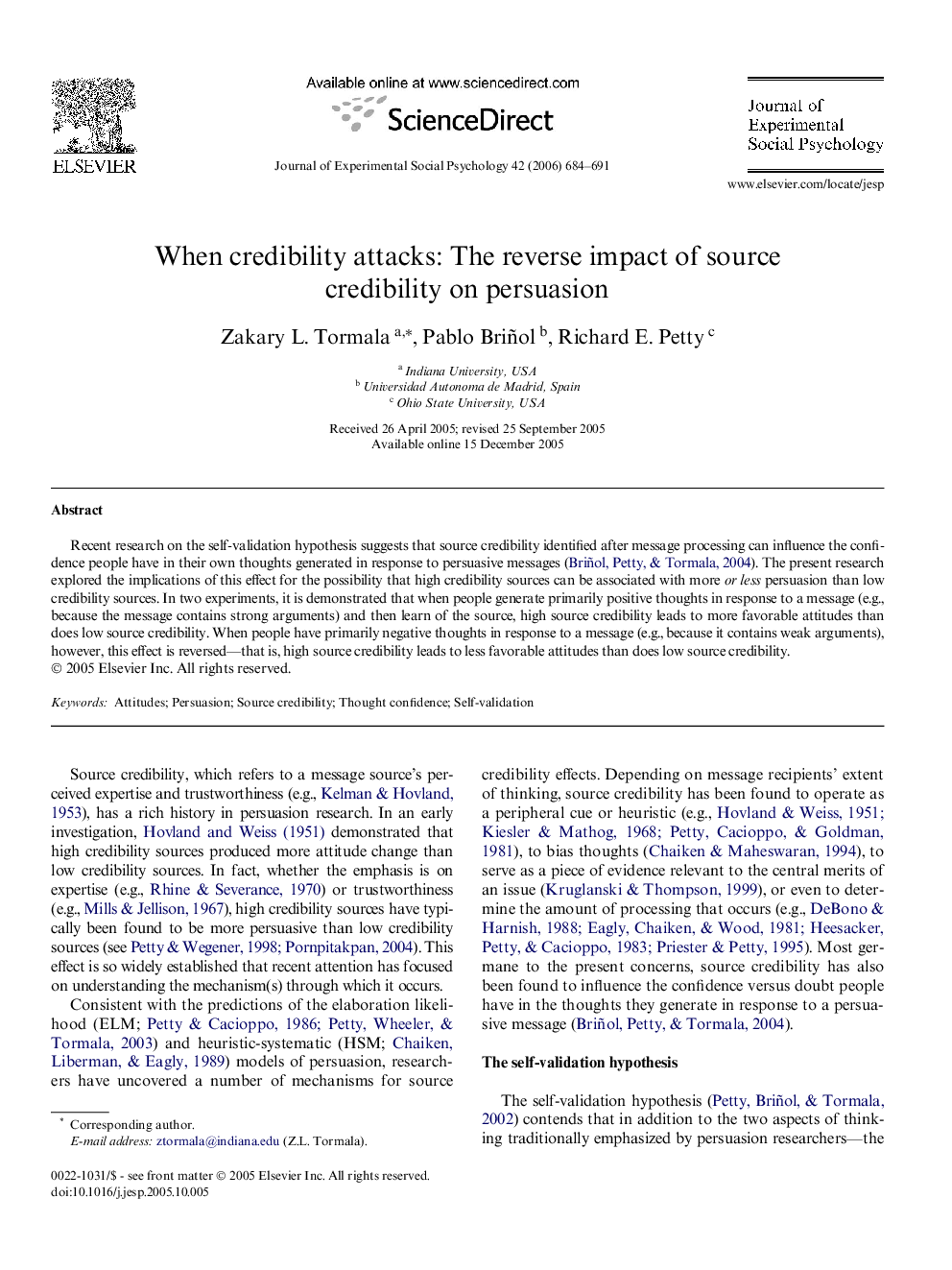| Article ID | Journal | Published Year | Pages | File Type |
|---|---|---|---|---|
| 948699 | Journal of Experimental Social Psychology | 2006 | 8 Pages |
Recent research on the self-validation hypothesis suggests that source credibility identified after message processing can influence the confidence people have in their own thoughts generated in response to persuasive messages (Briñol, Petty, & Tormala, 2004). The present research explored the implications of this effect for the possibility that high credibility sources can be associated with more or less persuasion than low credibility sources. In two experiments, it is demonstrated that when people generate primarily positive thoughts in response to a message (e.g., because the message contains strong arguments) and then learn of the source, high source credibility leads to more favorable attitudes than does low source credibility. When people have primarily negative thoughts in response to a message (e.g., because it contains weak arguments), however, this effect is reversed—that is, high source credibility leads to less favorable attitudes than does low source credibility.
